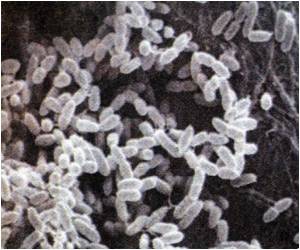The types of bacteria in the gut of primates depend on the species of the host as well as where the host lives and what they eat,reveals a recent study.

"Bacteria are crucial to human health. They enhance the immune system, protect against toxins, and assist in the maturation and renewal of intestinal cells," says Ochman.
Gut microbes outnumber our own cells by 10 to 1 but little is known about how certain species come to populate our stomachs, which are sterile at birth. What causes this variation within microbial communities has been a matter of debate. Some scientists have argued that diet and habitat play the most prominent roles.
However, Ochman and colleagues found that diversity in the composition of these gut communities, not including those occasional transients and unwelcome visitors such as pathogenic bacteria, depends primarily upon the host species.
Using genetic markers, the team measured the diversity and abundance of various microbial species found in fecal matter of five great ape species collected in their native ranges and discovered that bacterial populations assorted to species.
Moreover, the relationships of the microbial communities matched that of their host. In other words, not only is it possible to differentiate chimpanzees from humans by examining the microbial populations within their guts, but these gut microbes have been tracking the evolution of their hosts for millions of years.
Advertisement
Source-ANI














